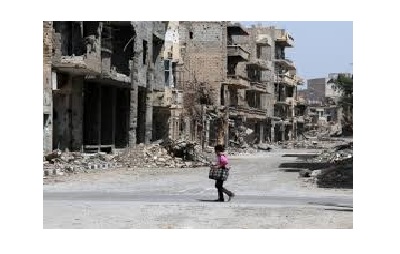
GENEVA — The Syrian opposition abruptly withdrew from peace talks in Geneva this week under pressure from Saudi Arabia and Turkey, two of the main backers of the rebels, according to diplomats and at least a half-dozen opposition figures.
When stepped-up regime offensives in Syria, backed by Iran and Russia, escalated on Monday, Riyadh and Ankara began to consider telling the opposition to withdraw, according to Turkish and Saudi diplomats present in Geneva this week with the opposition.
About a half-dozen cities and towns targeted in the new regime offensives have one thing in common: All were held by a mix of Islamist and moderate rebel groups funded and armed by Saudi Arabia and Turkey. Complicating the picture is that some, but not all, of these groups collaborate with the al Qaeda-linked Nusra Front. That gives the regime and its allies fodder for their claim that they are fighting terrorism.
“The Russian offensives were painful,” said Louay Hussein, a prominent Syrian opposition leader and a member of the delegation that was going to engage in indirect talks with the regime. “So the Saudis and Turks said: ‘Stop. These are my cards and I am losing them one after another.’ ”
Another opposition delegate, Monzer Makhous, said the decision to leave the talks was rather easy. To have remained while the offensive escalated around Aleppo would have meant losing the support of rebels on the ground, he said.
“We want to preserve the trust of the Syrian people,” he said.
The focus of all parties is shifting to Munich, where a meeting this coming week will bring together international powers involved in the five-year conflict, including the U.S., Russia, Saudi Arabia and Turkey. They are expected to focus first on forging a cease-fire, albeit a partial one, in the hope that this would enable the parties to restart the talks in Geneva on a political transition.
But ahead of those talks, events on the ground are moving quickly as both sides try to position themselves for a possible return to the negotiating table. Syrian regime and Iran-backed forces encircled the country’s biggest city, Aleppo, threatening to cut off a major rebel supply route to Turkey, as thousands of civilians fled Russian airstrikes.
“The escalation in Russian military operations could have had two objectives: Improve the situation of the regime before a cease-fire or antagonize the Syrian opposition so that it abandons the negotiations, which is what happened,” Saudi Foreign Minister Adel al-Jubeir said Thursday, before correcting himself and blaming the regime for the breakdown in talks.
Speaking to The Wall Street Journal in Geneva this week, one senior Turkish official said his country would never accept a settlement in Syria that doesn’t take into account its own interests.
“We are not after a quick fix in Syria, we are after a big reward in the form of permanent stability in Syria because we took a huge burden,” he said referring to Turkey’s hosting of 2.5 million refugees and financial and political assistance to Syrian rebels and opposition members over nearly five years.
On Friday, pro-regime forces including Iranian fighters and foreign Shiite militiamen supported by Iran, captured with the help of Russian airstrikes the town of Ratyan on the outskirts of Aleppo, according to opposition activists as well as media outlets affiliated with Iran and the Syrian regime. The town is situated along the main lifeline for the opposition to neighboring Turkey. Later some opposition activists said half of the town remained contested and that fierce fighting was ongoing.
If captured, it would be the fifth town or village these forces seized from rebels since Monday, a development that has allowed them to lift a siege imposed by opponents of President Bashar al-Assad on two Shiite and pro-regime towns near Aleppo, Nubl and Zahraa. The Assad regime is dominated by the minority Alawite sect, which is linked to Shiite Islam, while the opposition and its regional backers are mainly Sunni.
Airstrikes by the regime and its allies expanded Friday to the rebel-held eastern half of Aleppo city, antigovernment activists said.
In the south, regime forces aided by Russian warplanes and Iran-backed militias captured the strategic town of Ataman, considered the gateway to the city of Daraa, according to the Syrian military and opposition activists. It was the second strategic town rebels lost in the south within 10 days.
All of these places were held by a mix of Sunni Islamist and moderate rebel groups funded and armed by Sunni-led Saudi Arabia and Turkey and in some cases in coordination with the U.S.
http://www.wsj.com/articles/saudi-arabia-turkey-pushed-syrian-opposition-to-leave-talks-1454722008
photo by abcnews.go.com


Be the first to comment